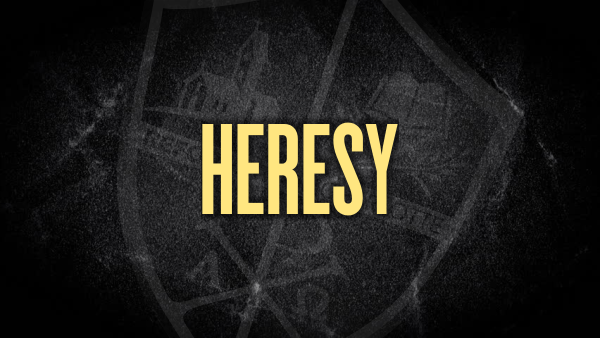Heresy: Transubstantiation
Transubstantiation is a doctrine that was formalized by the Catholic Church in the 13th century, most notably at the Fourth Lateran Council in 1215. It posits that during the Eucharist, the bread and wine are transformed into the actual body and blood of Jesus Christ, while their appearances remain unchanged. This belief has been a point of contention between the Catholic Church and many Protestant denominations, which typically hold to a symbolic interpretation of the Lord's Supper.
However, from a biblical perspective, transubstantiation contradicts the clear teaching of Scripture, which presents the elements of communion as symbolic of the body and blood of Christ, not a literal transformation. Key verses such as 1 Corinthians 11:24-25 are cited, where Jesus says, "This is my body which is for you; do this in remembrance of me. This cup is the new covenant in my blood; do this, whenever you drink it, in remembrance of me." The emphasis is on remembrance, not on the physical presence of Christ in the elements.
The rejection of transubstantiation aligns with the Protestant view of the sufficiency and authority of Scripture (Sola Scriptura) and rejects traditions that lack scriptural backing.
Interestingly, the issue of the real presence of Christ in the Eucharist has seen a variety of viewpoints within some sects of Protestantism itself, ranging from a spiritual presence to a strict memorialism. However, the concept of transubstantiation, with its specific theological implications, remains distinctly Catholic.
Key Tenets of the Doctrine of Transubstantiation:
The substances of bread and wine become the actual body and blood of Christ during the Eucharist.
The accidents (appearances) of bread and wine remain unchanged.
This change occurs by the consecration by a priest, who acts in the person of Christ.
Modern-Day Proponents of Transubstantiation:
While traditionally associated with the Catholic Church, the doctrine of transubstantiation or similar views on the Eucharist have been intriguingly discussed by figures outside the typical Catholic framework. For instance, Francis Chan, once associated with evangelical Protestantism, has expressed views that gravitate towards a more heretical and false understanding of the Lord's Supper, raising eyebrows and drawing criticism on his newly found views of the nature of communion across denominational lines. His views have even caused some to speculate if he would soon become Catholic.





